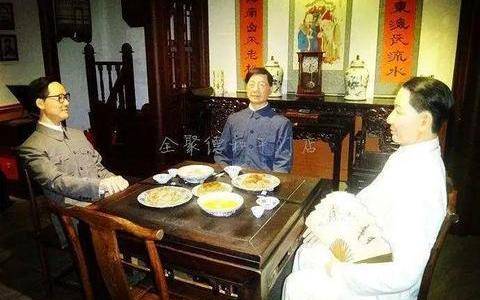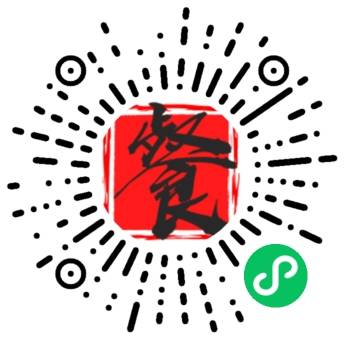▲Click “FBIF食品饮料创新” inblueto follow
Reply number “3″to join in F&B WeChat Group
Written by: Lin Haiyan
Edited by: Wilbur ZHU (WeChat ID: aotokuer),Anna HU, Wang Xiaohan
The former general manager of Fast Food Group of Uni-President Mr.Brian C.P Hsiehgave an eye-catching speech on “Competitive Strategy of Transformation and Upgrading” during the 2017’s Food & Beverage Innovation Forum at the Hilton Shanghai Hongqiao. His speech shed lights on the development of food and beverage industries.
Uni-President was established at Taiwan in 1967. During its 50 years’ development in Taiwan, the number of staff has grown from 82 up to 110,000 at the end of last year. The revenue of Uni-President last year is 94.4 billion RMB which is 7,800 times of its first year’s revenue of 12.44 million RMB. Today, Uni-President, a successful food and beverage company, has gone through four stages of transformation and upgrading: “production-oriented”, “marketing-oriented”, “channel-oriented” and “international oriented” to make what it is today. “Transformation and upgrading” is essential to the development of enterprises.
From Price Competition to Value Competition
“Our new food and beverage products should be healthy, fresh and discussable. The incoming competition will transform from price into value. Thus, products with profound business value are what we are pursuing.”
Social development has led to a great change in consumer demand. With limited resources and products in 1960s and 1970s, people only required for enough food. Few years later, as material resources enriching, people began to pursue the concept of “eating something good”. Alongside with the improvement of people’s health awareness, there are an increasing number of majority pursuing the lifestyle of “eating healthily”. And they are going after the concept of “eating something natural”, and then “eating something with connotation” in the short future. The 2016 domestic instant noodles and beverage market is a good example. All companies producing instant noodles and beverage suffered from revenue loss respectively. Experts and related personals all believe that the decline in purchasing power in such products is due to product overcapacity coupled with product homogeneity resulting in price competition. Mr. Brian C.P Hsieh, however, sharply pointed out that “the core reason why there is a decline in those markets is that the products the companies developed failed to arouse consumers’ purchase impulse.” It’s agreed on that the popular products in the following years should be healthy, fresh, while discussable and interesting at the same time. “Classmate Xiaoming”, for instance, a star product of Uni-President, enjoys high reputation among youngsters. The “seriously funny, cold brewed” slogan and the vivid IP image of “Classmate Xiaoming” provide huge added value for market competition.
The products with profound business value should be eye-popper and of added value. For business continuity, company must upgrade and enhance the value added of the product. For instance, selling a bag of flour, one can earn 8 yuan which is 10% of its price. A bag of flour, however, can be made into 20 boxes instant noodles or 80 8-inch cakes, which is much profitable than just selling the flour. Through the secondary process, the profits of 20 boxes instant noodles and 80 cakes are 240 yuan and 4000 yuan respectively. The value of a bag of flour can rise up to 500 times than it without any process. Thus, in order to get rid of low-end “price competition” and transform into “value competition”, the companies should focus on increasing the added value of products.
“The Channel Takes It All”
“The changes of channel will have significant impact on the transformation and upgrading of food and beverage industries. Without the channel, there is no possibility to sell large amount of products, let alone to develop new ones.”
With economy booming, there are a growing number of large chain retail stores (both home and abroad) showed outstanding achievements in selling fast moving consumer goods, health food and everyday chemicals. As a result, the manufacturers in these fields have to spend a great deal of energy and resources in this channel to gain greater profit, market shares and leading position. And this kind of large chain retail selling strategy is called Key Account, also as known as KA. According to Mr. Brian C.P Hsieh, Uni-President applies to different channels in mainland China and Taiwan. In Taiwan, the proportion of traditional channels accounts for less than 30%, KA modern channels accounts for 70%, while the mainland’s traditional channels accounts for about 75% to 80%, and KA channel only takes 20% to 25%. KA channel will have great impact on the future marketing. Excluding e-commerce present channel (including both traditional and modern), KA channel will take 70% in the future. It’s self-evident that basically the future layout of business is online, offline plus logistics. But to be more specific, the key of future business is the four different aspects of comprehensive strategy: business flow, logistics, information flow, and capital flow.
KA channel will reshape the Chinese retail market business structure because of its quick development, large scale and big market share. When the market share of modern KA channel rises up to 70%, the factors like reputation, channel management, innovation and R&D will be significant for running an enterprise. Many people will confuse the concepts of R&D and innovation. In fact, they are different. The so-called research and development is spending money at developing new technology and energy. Innovation, in the other hand, is profiting from technology. Innovation and R&D can be the same thing as well, only when the company can transform the technology into profitable products which take market shares.
Marketing Strategy: Differentiation Vs Improvement
“The selections of Strategic positioning and Target market from the view point of the core strengths of company. The company should present its uniqueness. Without distinguishable products, it’s difficult for the company to excel its competitors.”
Soup Daren is the top brand instant noodles of Uni-President. Soup Daren, at a price over 7.5 RMB, has its secret recipe——the soup bag. Unlike other instant noodles with powder seasoning, Soup Daren provides customers with the soup bags which are made from soup bones, vegetables and fruit. Uni-President values the demand of its customers. That’s the driving force for Uni-President to produce the instant noodles taste like shop’s fresh noodles. Likewise, “Classmate Xiaoming” aims at consumers in their 20s and 30s. Analyzing the TA well, “Classmate Xiaoming” makes itself outstanding by making its products both discussable and distinguishable. Thus, differentiation should be the main focus of marketing strategy for the companies want to be more successful.
Enhance Core Strength
“Transformation and upgrading in strategy planning and target market must be based on the core strengths of the company. If not, obstacles will slower the development of the company.”
Transformation and upgrading is based on their own core strengths. The transformation and upgrading of Yili is a good example. Due to its leading position in the marketing of milk, Yili squeezes into the market of yogurt which is also a dairy product. Mr. Brian C.P Hsieh shared the case of Kodak and Fuji. In 1998, Kodak and Fuji were both big company which had over 100-billion-dollars market value. But in 2012, Kodak went bankruptcy, while the market value of Fuji reached more than 200 billion dollars. The totally different fate of them is due to the different development strategies. Kodak transformed from developing films into photo printer, which abandoned its own strength in developing film and the need of the market. In contrast, Fuji paid attention to their own advantages of technology, and successfully combined it with cosmetics, and later went back to chemicals and optics. Fuji profits a lot from its transformation.
Uni-President wants to learn from this story. Uni-President aims at developing an extra layer for its instant noodles box, which will provide a cold flavor of the noodles by controlling the temperature of the box at -18°C to provide customers a better experience of eating instant noodles in summer. Uni-President believes that the products of Uni-President can distinguish themselves from others by focusing on their own core strengths in products developing.
Mr. Brian C.P Hsieh repeatedly highlighted that “the competitors of Uni-President are not the food and beverage companies, but the consumers.” In other word, regarding consumers as competitors can repel the company to focus more on the needs of consumers. The company should put more efforts into the added value of products, brand building, channel management and R&D. Only that, will there be chances for the company.
Food & Beverage Innovation Forum 2017(FBIF2017) was held in Shanghai from April 19th to 21st, 2017. The theme of FBIF2017 is“Global Innovation, Powering Future!”.Topics include Trends, R&D, Marketing and Packaging. 1500+ attended. Speakers include:Zhang Jianqiu, Executive President, Yili Group;Stephen Maher, President, Mondelez China;Zhou Li, Secretary of the Board, Ph.D, Nongfu Spring;Yan Weibin, Chairman, Ausnutria;Craig Slavtcheff, Global VP, R&D, Campbell Soup;Zhang Liaoyuan, Founder, Three Squirrels;Jet Jing, VP, Alibaba Group;Martin Suter, Head of eCommerce, China at AB InBev.For more please reply “FBIF” . / Tips / Click the Menu “FBIF” to view “Agenda“, “Speakers“, “Partners” and other On Site Activities Reply “attendee“, “photo“, “news” to get related information. For other key words, pls reply “keywords“ / Read More/ The Secret of Wyeth: Building an Ecosystem to Embrace Innovation 360: Let People Be Connected by Effective Branding Brand Socialization Opportunities in the Digital Marketing Era Exclusive | Tencent Reshapes FMCG Marketing with 3 Moves Coca-Cola’s Marketing Legend Creator Shared Secret of Marketing Share a Coke: How the Groundbreaking Campaign Got Its Start /WeChat Groups / Long Press this QR Code to follow“FBIF“. Reply number “3” to join inCEO,R&D,Marketing,Packaging,Functional Foods,Dairy,Beverage,Snacks, etc. WeChat groups(Group members include seniors from Nestle, Coca-Cola, PepsiCo, AB-InBev, Yili, Mengniu, Master Kong and Nongfu Spring etc.) ▲follow us and”Sticky On Top”
原创文章,作者:网络转载,如若转载,请注明出处:https://www.qiyu88.com/188494.html














